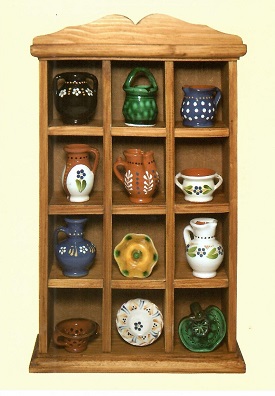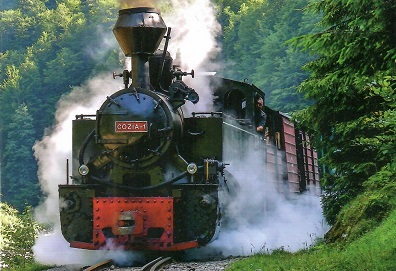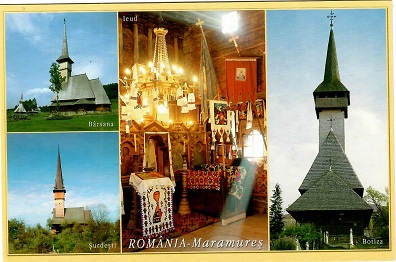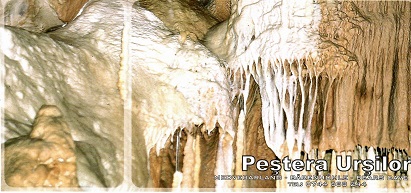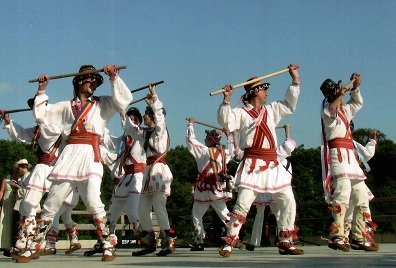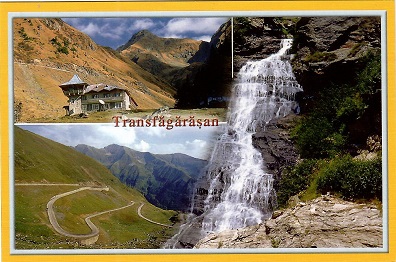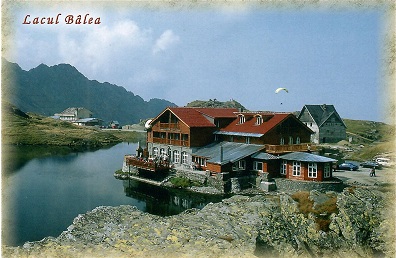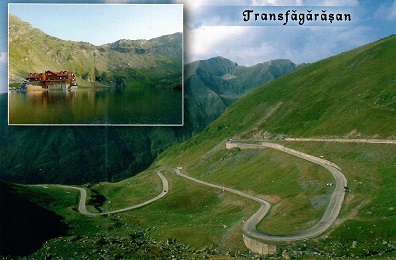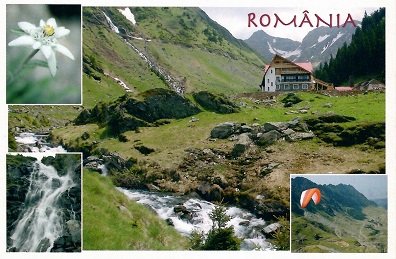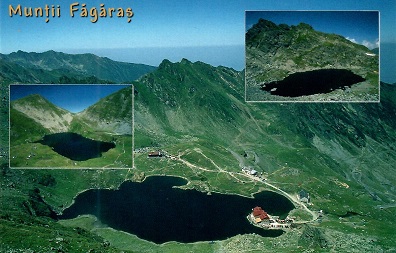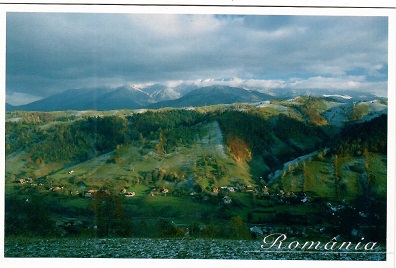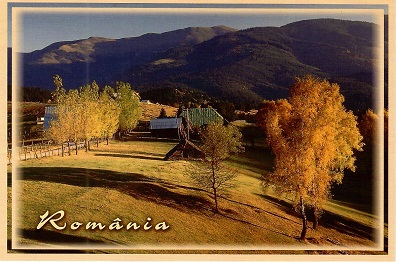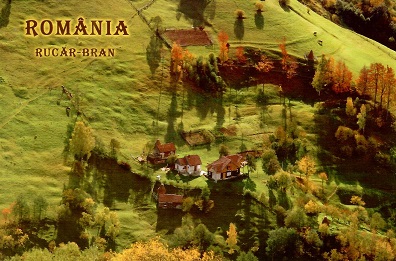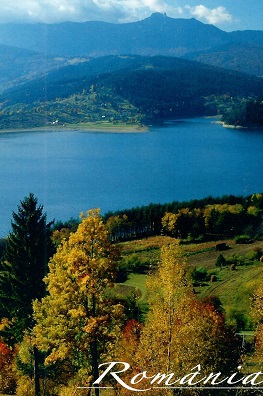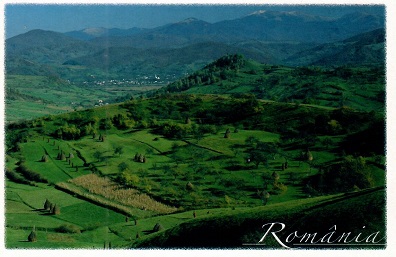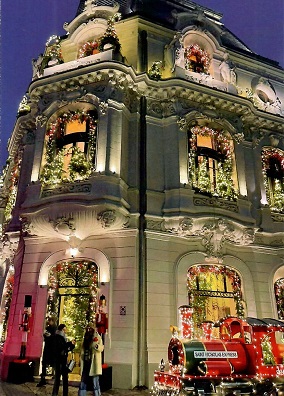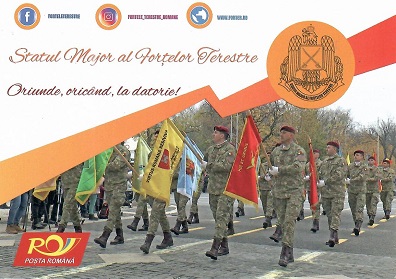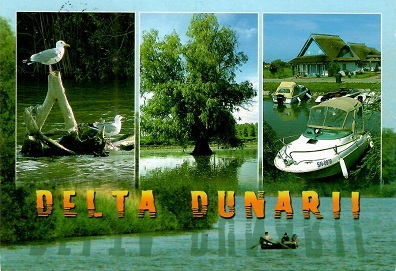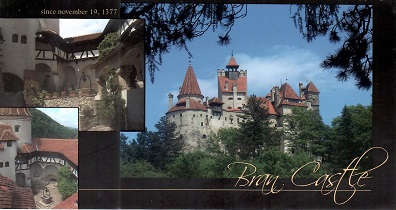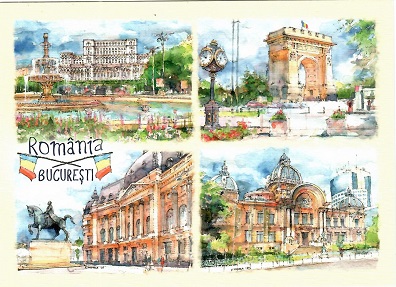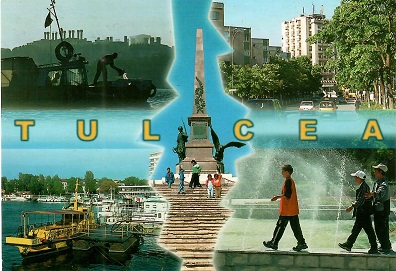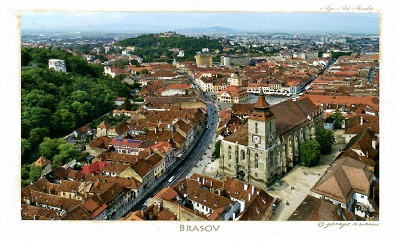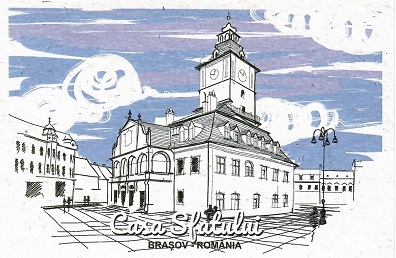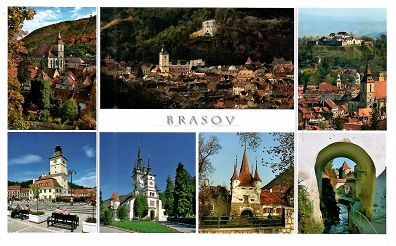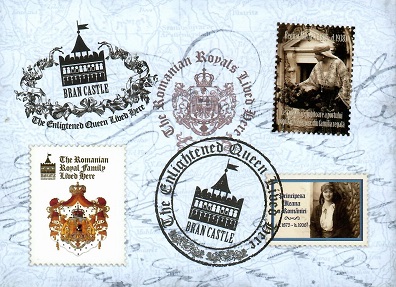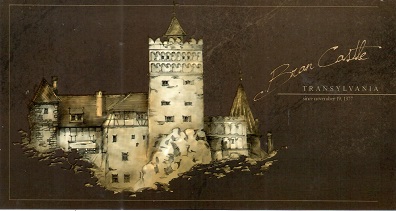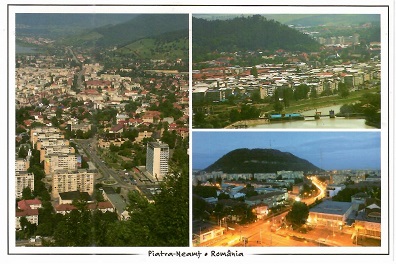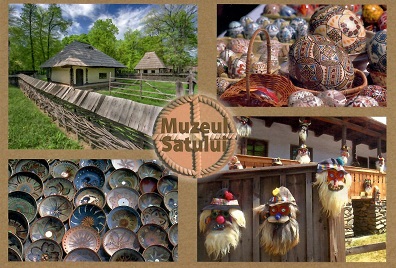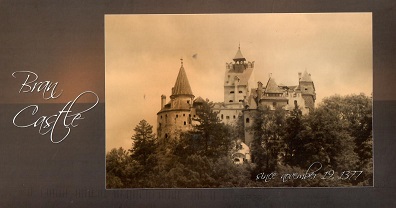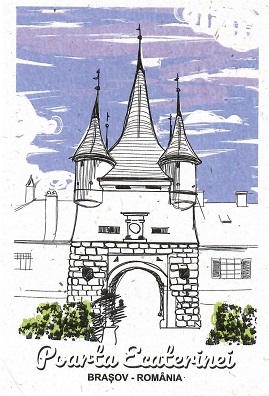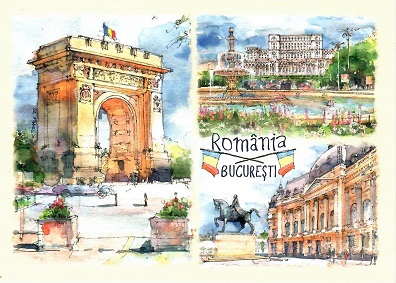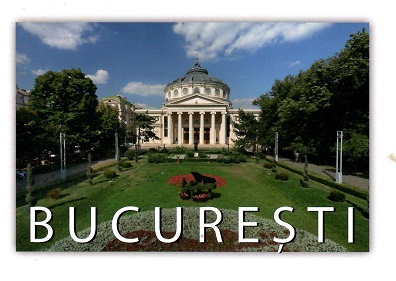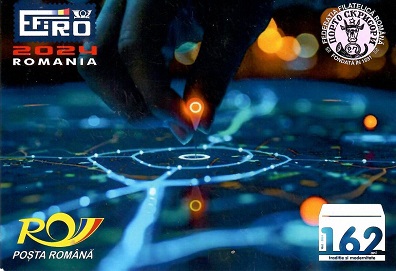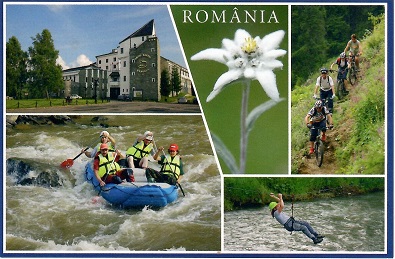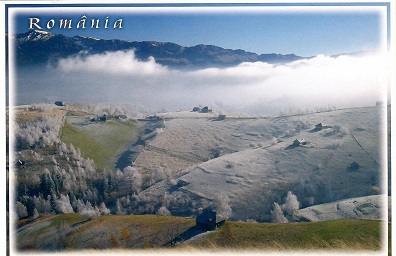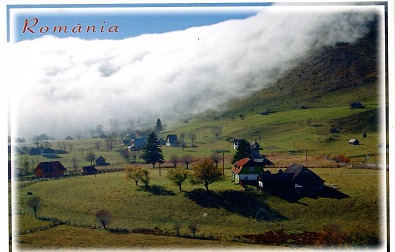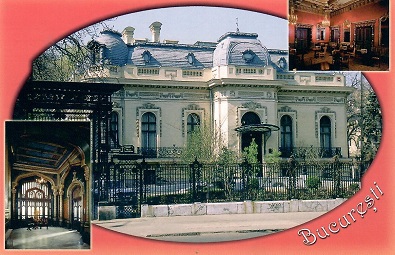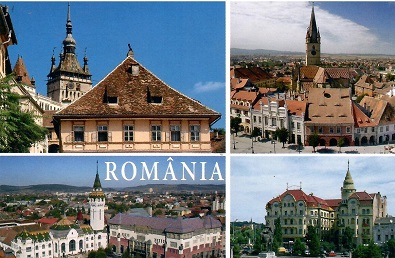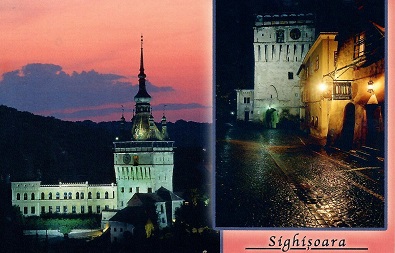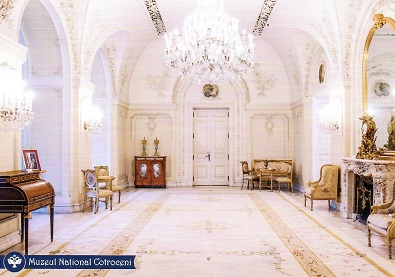-
Little Cupboard
Unused card published by the National Museum of Romanian Peasant in Bucharest, of this 20th-century exhibit from Baia Mare (Maramures). Grade: 1
-
Cog Railway
Unused card published by the National Museum of Romanian Peasant. The bilingual caption identifies: “Cog railway – Viseul de Sus, XX-th century” but we’re not certain what connection the train has with the museum. Grade: 1
-
Maramureș, Biserici (Churches)
Captioned only in Romanian on this unused card from Maramureș County in Romania’s far north. Grade: 1
-
Peştera Urşilor
Peştera Urşilor (Bear’s Cave) is located in the western Apuseni Mountains, on the outskirts of Chișcău village, Bihor County. It was discovered in 1975 by Speodava, a spelaeologist group. Bears’ Cave received its name after the 140 cave bear skeletons which were discovered on the site in 1983. This unused card measures 4″ x 8-1/2″ and is mostly promoting tours in Transylvania. Grade: 1
-
Dancers
This unused card would be perfect except for one thing: there’s no caption or identification at all. Highly unusual, but there it is. We do guarantee it’s from Romania, though. Grade: 1
-
Transfăgărășan
The Transfăgărășan or DN7C is a mountain road crossing the southern section of the Carpathian Mountains, the second-highest paved road in the country after the Transalpina. It starts near Bascov, and stretches 90 kilometres (56 mi) to the crossroad between the DN1 and Sibiu, between the highest peaks in the country, Moldoveanu and Negoiu. The road was built in the early 1970s as a strategic military route and connects the historic regions of Transylvania and Wallachia. The Romanian caption on this unused postcard also mentions the Capra waterfall, and a cabana. Grade: 1
-
Transfăgărășan – Balea Lake and Chalet
The chalet looks bigger than the lake, on this unused card. Grade: 1
-
Transfăgărășan
Meaning just the road itself. Unused card. Grade: 1
-
Transfăgărășan – Capra Chalet
Bucolic scene on a road famous in Romania, at least. Unused postcard. Grade: 1
-
Făgăraș Mountains
The Făgăraș Mountains (Romanian: Munții Făgărașului) are the highest mountains of the Southern Carpathians, bordered in the north by the Făgăraș Depression, through which the Olt River flows, and in the west by the Olt Valley. Despite its name, Făgăraș, located 20 km (12 mi) to the north, is not the nearest town to the mountain range, which has no major settlements. Glacier lakes in the area include Bâlea (2,034 m, 46,508 m2, 11.35 m deep), the largest. The highest lake is in the Hărtopul Leaotei glacial valley. The deepest glacial lake is Podragu (2,140 m, 28,550 m2; 15.5 m deep). Other lakes are Urlea (2,170 m, 20,150 m2) and Capra (2,230 m, 18,340 m2), but of all these, it’s Bâlea and Capra appearing on the unused postcard — along with Călțun. In its own way, the card manages to highlight all of this. Grade: 1
-
Rucăr-Bran Corridor and Bucegi Mountains
The Rucăr-Bran Pass (corridor) is a mountain pass in Romania, linking the counties of Brașov and Argeș. It has spectacular natural views, looking over the Bucegi Mountains of the Southern Carpathians. This unused card gives you an idea of that. Grade: 1
-
Rucăr-Bran Corridor – Fundata Village
Fundata is a commune in Brașov County, in Transylvania. It is composed of three villages: Fundata, Fundățica, and Șirnea, and offers panoramas of the Piatra Craiului and Bucegi Mountains. During the 2013 European Youth Olympic Winter Festival, it held the biathlon competition, so it’s not so isolated. Unused card. Grade: 1
-
Rucăr-Bran Corridor – Moieciu Village
Moieciu is a commune in Brașov County, Transylvania, 29 km south of Brașov, within the Bran Pass. The commune is composed of six villages: Cheia, Drumul Carului, Măgura, Moieciu de Jos (the commune center), Moieciu de Sus, and Peștera. It’s Moieciu de Jos that’s featured on this unused card. Grade: 1
-
Bicaz Lake
Lake Izvorul Muntelui, also known as Lake Bicaz, is an artificial lake created after the completion of a dam built on the Bistrița River. The dam was built between 1950 and 1960; the lake has a length of 40 km (25 mi), an area of 31 km2 (12 sq mi) and a maximum volume of 1,250 billion m³. The lake is a tourist destination in the region, where visitors take the ferryboat from Bicaz port for a short trip on the lake and to view Mount Ceahlău on the west shore. In the 1960s and 1970s there was regular ferry service between the Bicaz port and the villages on the lake shore. Unused card. Grade: 1
-
Maramureș, Autumn in Văleni
Văleni is nothing if not traditional, with one of its features being an event taking place on Christmas Day, at lunchtime, in the center of the village. A group of boys, covered with zoomorphic masks, read the “vestirils” (“herdet’ișurile”), versified texts with an ironic and moralizing character addressed to the young unmarried people of the village. Unused card. Grade: 1
-
Christmas Time in Bucharest
As a rule, we’ve stopped including self-made non-commercial postcards but this one and a few more to come are so good that we’ll make an exception. Unused, and with a photo by Cristina Schtrumpf. Grade: 1
-
Statul Major
An official, unused, post-paid card from Post Romana. Google translates that red legend as: “The General Staff of the Land Forces … Anywhere, anytime, on duty!” Patriotic indeed. Grade: 1
-
Delta Dunarii
The Danube Delta, pictured on a card mailed in 2023 with Europa stamp, two postmarks, and bilingual blue Prioritar label. Grade: 1
-
Brașov, Bran Castle
One can easily imagine Count Dracula living there — if there had actually been a Count Dracula, that is. This 4-1/2″ x 8″ card was mailed from Romania in 2023 and has two stamps and partial postmark. Grade: 1
-
București, multiple views
Artwork on this card shows the famous Palatul Parlamentului, the Arch of Triumph, the Monument of Karol I, University library, and CEC Palace. Those five are according to the caption. Yes, we know there are only four drawings. The card was mailed from Canada (not Romania!) in 2023, with two uncancelled stamps. Grade: 4
-
Tulcea, multiple views
Mailed in 2023, with stamp, two large postmarks, and bilingual Prioritar label. Grade: 1
-
Brasov, Black Church
Not postally used, but with a notation written in the message area. Grade: 3
-
Brasov, Casa Sfatului
When Google Translate is good, it’s very good, as in this entry from Wikipedia: “The beginning of construction on the site of the Council House is documented more than 600 years ago, on December 23 , 1420 , when an agreement was concluded between the District Assembly of Șărăi Bârsei and the Fur Guild. Representatives of the Brașov Fur Fur Guild allowed nine communes of the țara Bârsei Province to build a room above the guild’s sales vault for ‘dispensing of justice’ and for the magistrate’s meetings. However, due to the Turkish invasion of 1421, as well as the arrest of the city magistrate, construction work was delayed.” That they kept such good records then is impressive. The unused card has “I (heart) Transylvania” on the reverse, so you’ll be safe if you go to visit. Grade: 1
-
Brasov, multiple views
Excellent, unused, contemporary postcard. Seven views are all identified (in Romanian) in the reverse caption, but it’s exhausting so we’ll skip the theme category entries this time. But we think they are mostly churches and castles. Grade: 1
-
Brasov, Bran Castle
This otherwise unused card has what we *think* is a rubber-stamped chop on the reverse attesting to the authenticity of the card. What you see in our scan is all in the design: those are not actual stamps. Royalty, for certain. Grade: 1
-
Brasov, Bran Castle, night
Oversized (4-1/4″ x 8″) unused card of a Transylvania location where Dracula would have felt right at home — if he had existed, of course. Grade: 1
-
Piatra Neamț
Piatra Neamț is the capital city of Neamț County, in the historical region of Western Moldavia, in northeastern Romania. Because of its privileged location in the Eastern Carpathian mountains, it is considered one of the most picturesque cities in Romania. And here are multiple views on a card mailed in 2023 with two stamps and bilingual Prioritar sticker and postmark. Everything you could want from a contemporary Romanian postcard. Grade: 1
-
Bucharest, The Village Museum
A window into various scenes from this popular museum. The card was mailed from Canada (not Romania!) in 2024, with stamp and postmark. Grade: 3
-
Brașov, Bran Castle
Romania really knows how to milk the Dracula legend, and atmospheric cards like this one are a huge help towards that end. The card measures 4-3/8″ x 8-1/8″ but was mailed from Canada (not Romania) with three different stamps and postmark. Grade: 3
-
Brașov, Poarta Ecaterinei (Catherine’s Gate)
Catherine’s Gate (Poarta Ecaterinei was built by the Tailors’ Guild in 1559 for defensive purposes to replace an old gate destroyed by a flood in 1526. It is named after St. Catherine’s Monastery that was situated there in former times. It is the only original city gate to have survived from medieval times. The central tower is only a part of the original gate; documents talk about the existence of a wooden structure which was demolished in 1827. The original structure can be seen at the Weaver’s Bastion where the large model of Brașov in 1600 is displayed. Unused card, with “I (heart) Transylvania” on the back. Grade: 1
-
București, multiple view
Unused watercolor card for which the three scenes are identified in Romanian and English: Arch of Triumph, Palace of the Parliament, and Monument of Karol I along with the University library. Grade: 1
-
București, Romanian Athenaeum
Unused, with original price sticker in the postage area, so: Grade: 2
-
Posta Romana 2024 EFIRO Exhibition
This official, one-of-a-kind card from the World Specialized Philatelic Exhibition, held in Bucharest in 2024, had pre-printed postal authority. It bears the postmark and two different “chops” from the exhibit. It appears to have been intended for domestic Romanian use, but made it out of the country anyway — something of a miracle where Posta Romana is concerned. Grade: 1
-
Bistrița-Năsăud, multiple views
Bistrița-Năsăudis a county in Transylvania, and the views — including Dracula’s Castle at Piatra Fântânele — are identified on the reverse. That’s edelweiss, by the way. Unused. Grade: 1
-
Autumn in the Rucăr–Bran Corridor
The Rucăr–Bran Pass is a mountain pass linking the counties of Brașov and Argeș. It has some of the most spectacular natural views in Romania, looking over the Bucegi Mountains of the Southern Carpathians. This unused card manages to show some of it. Grade: 1
-
Rucăr–Bran Corridor, Autumn in Simea
Unused. Grade: 1
-
Bucharest, three houses
In the bilingual Romanian/English caption of this unused card, these are identified as: The Monteoru House, The Scientists’ House, and The University Professors’ House. Grade: 1
-
Urban Monuments
On this unused card, identified as being in Sighișoara, Sibiu, Târgu Mureș (the 16th-largest city in Romania!), and Oradea. The card just doesn’t say exactly what they are. Grade: 1
-
Sighișoara, The Clock Tower
In every fortification system, one fortress dominates the others: the master-tower. The Clock Tower of Sighișoara (Romanian: Turnul cu Ceas) is the main entry point to the citadel, opposite guarded by Tailors’ Tower. At 64 meters, the tower is visible from almost every corner of the city. Its purpose was to defend the main gate of the citadel and also served as the town hall until 1556. Now it’s considered one of the most expressive clock towers in Transylvania. Unused card. Grade: 1
-
Bucharest, Muzeul National Cotroceni – entryway
The Cotroceni Palace, today the Cotroceni National Museum, has over 300 years of history, starting with Prince Serban Cantacuzino (1678 – 1688). He founded a monastery here and a palace built in the Baroque style, specific to Western Europe of those days. After Cantacuzino, Barbu Dimitrie Stirbei rebuilt and modernized the palace in 1852, it became his summer residence. During the reign of Alexandru Ioan Cuza (1859 – 1866), the Cotroceni Palace was again refurbished to become an official European-style residence, and the area became known as a center for the Romanian reunification spirit. Cotroceni is where the Central Powers and Romania signed the Treaty of Bucharest in 1918. Then in 1949, Cotroceni became the Palace of the Communist Youth Organisation (The Communist Pioneers). In 1977, during the earthquake, the palace was heavily damaged. The architect Nicolae Vladescu rebuilt it and added a new wing, which is today the home of the Presidential Administration. So it has quite a jumbled history, and this unused card begins a series of views of the museum it also is now. Grade: 1

